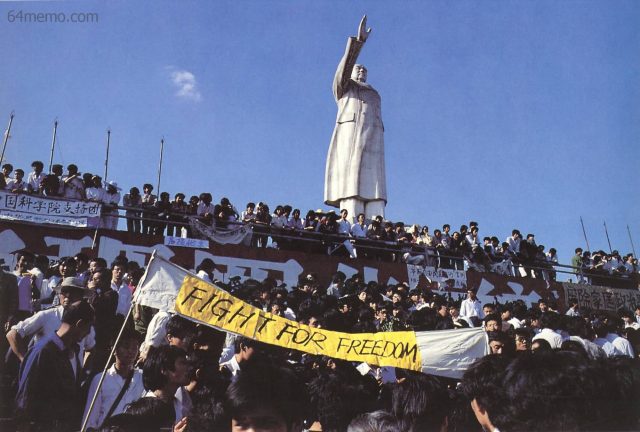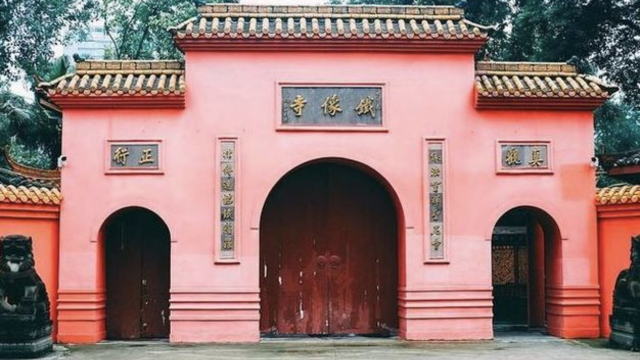After General Yang Baibing, another symposium celebrates Wang Fang, who as Minister of Public Security shared responsibility for the students’ carnage.
by Massimo Introvigne

Last month, many in the world expressed outrage after a CCP conference held on September 9 celebrated the 100th anniversary of the birth of General Yang Baibing (1920–2013), who signed the order to shoot the students on Tiananmen Square in 1989.
Yang was not the only butcher of Tiananmen. He shared responsibility for issuing the fatal order with the then Minister of Public Security, Wang Fang (1920–2009). Yang and Wang happened to be born in the same year, 1920. The CCP celebrated the 100th anniversary of Wang’s birth, just as it did for Yang.
On September 30, the People’s Daily published the main speech of a symposium honoring Wang, delivered with “great reverence” by Politburo member Guo Shengkun, the secretary of the powerful Central Political and Legal Affairs Commission of the CCP, and the former successor of Wang as Minister of Public Security between 2012 and 2017.
Guo called Wang “an outstanding leader of the public security political and legal front,” and stated that “the party and the people miss him deeply.” Wang, Guo said, fought with Chairman Mao in the Civil War, then “shifted the focus of his work from the battlefield filled with gunpowder to the front line of public security defending the regime.” Although implacable with the Party’s enemies, he found himself on the wrong side of the CCP internecine struggles during the Cultural Revolution, and was arrested. But, Guo said, Wang “always maintained a firm belief in the CCP and Communism.”
After the end of the Cultural Revolution, he was rehabilitated, and took his personal revenge as leader of the team who collected evidence against Mao’s widow, Jiang Qing (1914–1991). She had been the main instigator of the Cultural Revolution, although she maintained she had always followed her husband’s directives. Wang also acted as a prosecutor in Jiang’s trial in 1981.
He was then appointed as the CCP Secretary in the province of Zhejiang, and in 1987 became the national Minister of Public Security. In this capacity, Guo said, “During the political turmoil at the turn of the spring and summer of 1989, he stood firm and clear-cut, resolutely supported the decisions and orders of the CCP Central Committee and the State Council, performed his duties conscientiously, and calmly directed the public security organs across the country to strengthen social control in order to achieve the goal. The victory in this struggle played an important role.”
“Today, Guo concluded, while we commemorate Comrade Wang Fang, we want to take him as an example, vigorously promote his fine style of seeking the truth and being pragmatic at the same time, working hard, being brave to act, and performing his duties faithfully. We should ensure that the important instructions of General Secretary Xi Jinping and the important decisions and directives of the CCP Central Committee are fully implemented.”
The symposium demonstrated that the CCP still considers the 1989 events of Tiananmen as a “victory,” and is grateful to those who organized and carried out the massacre of the students. They are regarded as a model to imitate of absolute obedience to the CCP and ruthless repression of dissidents.
This is part of the general CCP approach to recent Chinese and world history, which is dominated by Xi Jinping’s continuous search for the causes of the fall of the Soviet Union, and how the Communist Party in China may avoid sharing the fate of its Soviet counterpart. While students were protesting in Tiananmen, Mihail Gorbachev visited China, urging moderation and dialogue. By not listening to the visiting Soviet leader, and dispatching men such as Wang Fang and Yang Baibing to kill some 10,000 students and other protesters, the CCP leadership, or so Xi Jinping believes, saved the Party from losing the power, and its leaders from ending up like Gorbachev. And, for the CCP, nothing is more important than preserving the power of the CCP.
Source: Bitter Winter












